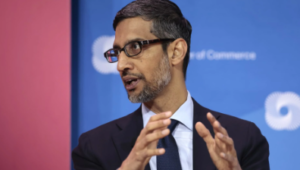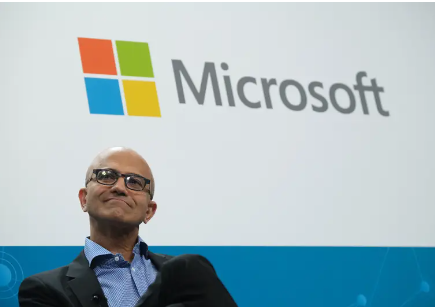Keywords: Jim Kavanaugh, AI impact on jobs, World Wide Technology, business transparency, artificial intelligence workforce, AI job disruption, AI productivity boost, Clara Shih, Salesforce AI, Klarna workforce reduction, AI automation effects, future of work.
Jim Kavanaugh, CEO of World Wide Technology, urges transparency about the inevitable changes AI will bring to the workforce
St. Louis, MO — Jim Kavanaugh, CEO of tech giant World Wide Technology (WWT), is urging business leaders to be honest and transparent with their employees about the disruptive impact artificial intelligence (AI) will have on jobs. In a candid interview with CNBC, the billionaire entrepreneur stressed that people are “too smart” to be misled into thinking AI won’t transform their work environment or result in job losses.
“If you think you’re going to try to game this, and that you’re going to tell employees nothing’s going to change, and everything’s going to be fine, that’s just BS,” Kavanaugh stated. He emphasized the importance of clear and honest communication from CEOs, especially when navigating transformative technologies like AI that are poised to reshape the future of work.
WWT, co-founded by Kavanaugh in 1990, has grown into a leading provider of enterprise technology solutions, including cloud computing, data analytics, and AI services. With annual revenues of $20 billion, the company is at the forefront of technological innovation. Kavanaugh, who has a net worth of $7 billion according to Forbes, believes AI will ultimately boost productivity, but warns that it will also disrupt many traditional job roles.

Prepare for the AI Revolution
Kavanaugh’s message to employees is clear: embrace AI, educate yourself, and be proactive in understanding how technology will impact your job. “There’s going to be all kinds of changes,” he said. “If I could give any advice, it’s that everybody should be a student of AI and tech and not be afraid of it.”
He cautioned against underestimating the changes AI will bring, highlighting the need for businesses and workers to adapt. “Sitting there and saying, ‘I’m going to try to throw cold water on this fire, I’m going to try to put it out and ignore it,’ that’s a complete mistake,” Kavanaugh asserted.
A Job Destroyer or Creator?
The question of whether AI will create or destroy jobs has long been debated. A recent Goldman Sachs report suggests that up to 300 million jobs worldwide could be impacted by generative AI technologies, with two-thirds of current roles in the U.S. and Europe exposed to some level of automation. Despite these concerns, Kavanaugh remains optimistic, viewing AI as a tool that can enhance, rather than eliminate, most jobs.
Clara Shih, head of AI at Salesforce, echoes this sentiment. Speaking at Salesforce’s annual Dreamforce event, Shih acknowledged that while some roles will disappear due to AI advancements, new opportunities will arise. “The internet destroyed a lot of jobs,” Shih said, “but then it created brand new ones that we couldn’t have even imagined in 1999.”
A Call for Transparency
For companies like Klarna, the impact of AI on the workforce is already significant. The Swedish fintech firm recently reduced its staff from 5,000 to 3,800, attributing the downsizing to efficiencies gained through AI. Klarna plans to further cut its workforce to 2,000 next year, using AI to streamline operations in marketing and customer service.
Kavanaugh’s advice to business leaders is simple yet powerful: be transparent with your employees. “The job of a CEO is to be as transparent as possible and always honest with their employees about where they stand,” he said. This approach, he argues, is crucial for navigating not only the AI revolution but any disruptive macroeconomic event.
Adapting to an AI-Driven Future
As AI continues to evolve, Kavanaugh’s call for openness and adaptability resonates across industries. The transformative power of AI can no longer be ignored, and both business leaders and employees must prepare for a rapidly changing job landscape. While the future remains uncertain, one thing is clear: the companies and workers who embrace AI and remain agile will be the ones to thrive in the new digital age.






